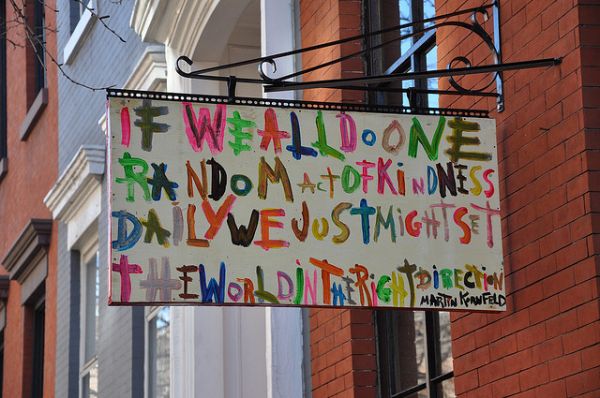Science
has shown us that people who are generous and altruistic are happier
and healthier than people who aren’t, no matter what economic class they
belong to. But it’s not as easy to be kind to strangers as you’d think.
Every people are often suspicious of acts of kindness, especially from
someone they don’t know. Psychologist Sandi Mann, who is studying the
“pay it forward” phenomenon, found this out firsthand when she tried to
give away an extra coffee at the cafe when it came with her child’s
breakfast. No one wanted to accept it!
It was only
once she framed the act differently, so that it seemed more logical, and
less altruistic, that their attitudes changed. “Suddenly it was a
different story altogether – it made perfect sense that my kid won’t
drink coffee.” They still refused, but “the suspicion vanished, and
there were smiles, and thanks”. Eventually it was accepted by a lady
named Rochel, who subsequently found an opportunity later in the week to
treat someone else.
That initial mistrust was a common theme for
each of the following 13 days – in which she tried to offer strangers
an umbrella on a rainy day, pay for someone’s parking ticket, and let
fellow shoppers jump ahead of her in checkout queues. “Suspicion was the
strongest reaction throughout,” she says. Each time, it was only when
she offered a rational explanation – such as the fact she was waiting
for someone at the checkout – that people would accept her offers.
Looking back, Mann now explains it as “stranger danger”. “We’re brought
up to expect strangers to put one over us,” she says.
It’s
true that we often mistrust strangers bearing gifts, because we don’t
want to suffer the fate of the Trojans. And free gifts so often come
with strings attached. But there may be other forces at work, like a
feeling we don't deserve something free, or unwanted implied obligation
to pay it back or forward. And research also tells us that spite and
greed are more contagious than kindness- which only makes the effort of
spreading kindness more crucial. Read more about
the research on kindness and generosity at BBC Future.


No comments:
Post a Comment